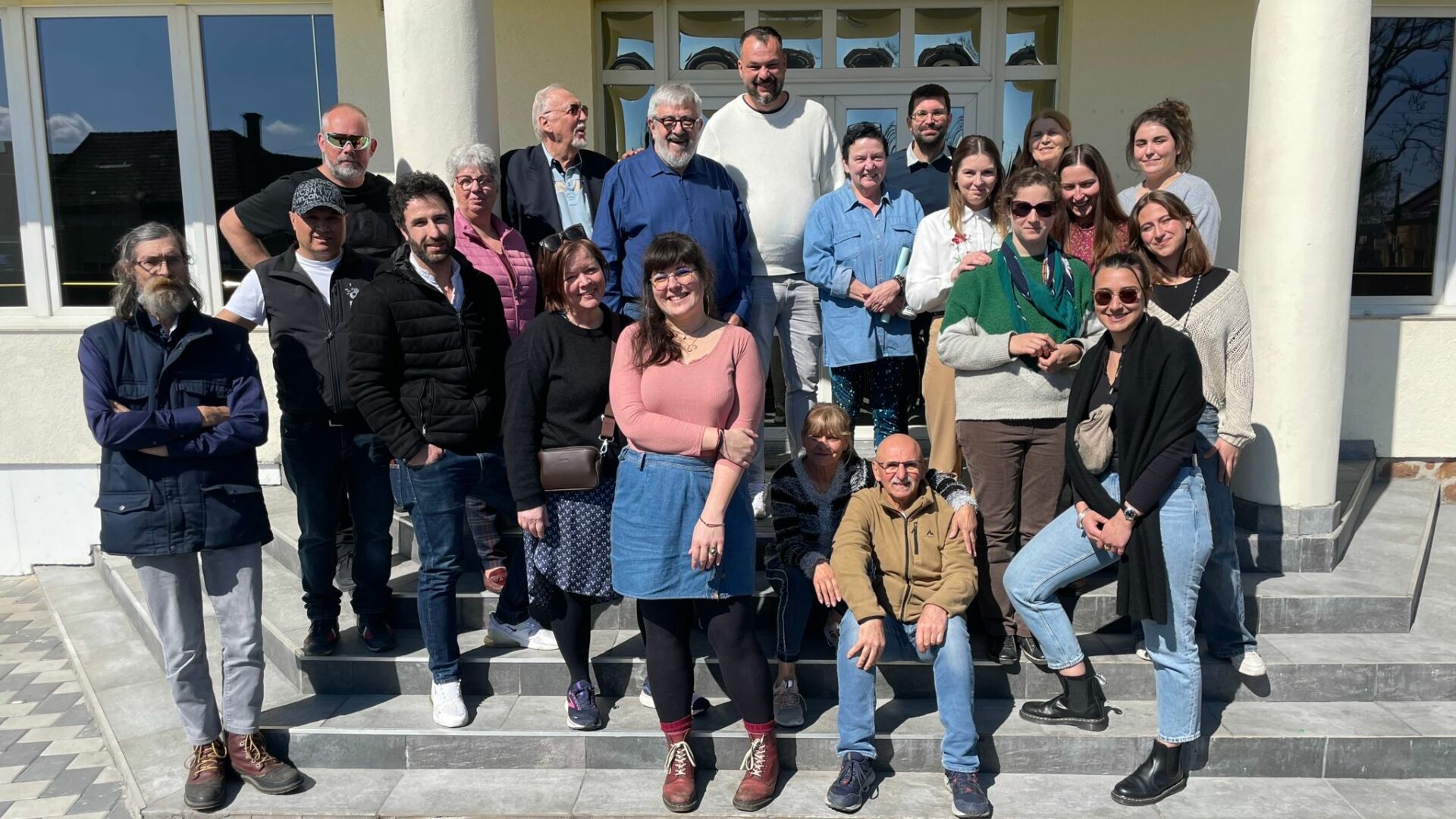Geographical collectives: a key event in the Emmaus year
In March 2024, two important events were held for Emmaus Europe groups: the Poland-Ukraine Collective and Romania Collective. These meetings offered a chance to tackle the thorny issue of business models for groups in these regions, in light of the challenges they face, whether political, economic or legal. We asked Emmanuel Rabourdin, Head of Solidarity, to tell us more.
Why was the issue of economic autonomy for Emmaus groups in Eastern Europe discussed?
Several factors prompted us to address this issue collectively with the groups.
Firstly, Russia’s large-scale invasion of Ukraine has caused widespread economic upheaval in the region: inflation, sharp rise in fuel and energy prices, growing inequalities, among other effects.
These consequences have had a direct impact on Eastern European groups, most of which have based their business model, to some extent, on solidarity, in the form of goods transported by Western European groups. One of the challenges for these collectives was to start looking at how to avoid becoming “dependent” on solidarity, while maintaining strong ties with the Emmaus groups that transport goods.
Finally, and this is especially true in Romania, transporting solidarity goods has really been put to the test in recent months by overzealous Romanian customs officials. Romanian customs sent back several Emmaus lorries without any legal basis (and therefore without permitting the decision to be challenged on a reasoned basis), on the grounds that the country does not wish to receive Western Europe’s “waste”. The reasons cited: cobwebs on the furniture, blankets (protecting the furniture) that had not been disinfected, among others. This situation, which is in the process of being resolved, highlighted the fragility of business models based largely on the transport of goods, and the need for groups to develop new economic activities built on local opportunities.
Are you saying that we should stop transporting goods to Eastern Europe?
No, transported goods are still essential for these groups, we are simply saying that it is not enough. Moreover, it means we avoid destroying good quality furniture that is not sold in Western Europe but is very popular in Eastern Europe. It is also a great opportunity for exchanges between groups.
Were the collectives able to discuss future prospects for the groups?
Absolutely! Solutions exist, and groups are already seizing them. In Poland, the collection of donations is expanding and becoming increasingly important in the groups’ business activity. Some have already begun to diversify their business model, for example by opening a pizzeria in Lublin, or developing specialised skills in restoring antique furniture, such as in Brat Albert.
In Romania, the Satu Mare group has been developing two new business activities over the last two years: creating rags for industrial use by companies and setting up a sewing workshop, making tote bags in particular. Spurred on by their recognition as a protected unit (with more than 50% of its employees having some form of disability) these two activities are aimed primarily at public and private sector companies. Purchasing products from protected units enables companies to benefit from state subsidies.
In Iași, the group is also expanding into moulding concrete paving stones and ironwork, in addition to their farming activities and their Popești farm.
Both collectives were able to pinpoint needs in terms of support for groups making this economic transition. Of course, this does not mean stopping the transport programme, which reflects internal solidarity within the Emmaus movement extending far beyond the transported goods. Besides, groups will still need this solidarity support in the years to come. The aim was above all to discuss ways of diversifying their activities and strengthening their autonomy, in line with the resolutions of the World Assembly in Piriapolis (2022).
What are the consequences of the war in Ukraine for Eastern European groups and for the movement as a whole?
First and foremost, both collectives provided an opportunity to hear from those who are experiencing the conflict first hand: Natalia, director of the Ukrainian group Oselya, and Grigory, the National Delegate of Ukraine, spoke of the difficulties faced by the group since the start of the large-scale invasion, and the dangers of a Russian victory in Ukraine. Similarly, groups from Poland, Georgia and Romania reminded us of the dangers that Putin’s Russia represents for individual freedoms, freedom of association, and the treatment of minorities and vulnerable people. The term “resist”, as used by Abbé Pierre during the Second World War, came up several times in the debates.
Bringing together representatives from groups based in ten different countries, these collectives were an opportunity to listen to everyone’s feelings about the conflict, at a time when the debate on the Emmaus movement’s position on armed conflicts is being raised at regional and international level.
A final collective meeting will take place in Trogir, Croatia, at the beginning of June: the feedback from our Croatian and Bosnian friends will be crucial, just under 30 years after the conflict that engulfed the region in the 1990s. The matter of reconstruction will be addressed in light of their recent experience.
What is a “geographical collective”?
Each year, the collectives bring together groups from one region of Europe to discuss issues relating to that region and to promote European solidarity. Three collectives exist:
- The Poland-Ukraine Collective, which has gradually expanded and now includes Emmaus groups present in Poland, Ukraine, Georgia, Latvia and Lithuania.
- The Romania Collective, with the three Romanian groups.
- The South-East Europe Collective, which comprises groups from Bosnia and Herzegovina and Croatia.
These three collectives focus on these European regions, but they are also open to all members of the movement who wish to take part. These meetings are an opportunity to learn about other ways of putting the Emmaus model into practice and are a great way to understand more about issues in other European countries.

© Emmaus Europe



